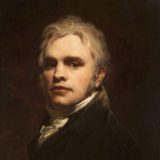I concluded my second essay (see here for part one) in this four-essay series noting conservative sorcery doesn’t work. But what of the sorcery of the enemy? What is it, and how does it work?
Generally speaking, people turn to thaumaturgy when an important goal cannot be achieved by ordinary non-magical means. The important goal may be palpable and simple, such as defeating an entrenched enemy, warding off an unpredictable danger, or changing the hearts that refuse to requite affection. That important goal may also be intangible, culturally driven, and complex.
The inimitable commentator on American thought, Vernon Parrington, observed “The body of thought brought to the Americas by the immigrant Puritans, and which gave a special cast to the New England mind, may be summed up as . . . liberalism.” The hold that this liberalism had on the New England mind, the most dominant mind of the nation, has been passed down through the ages to the present.
While Protestantism habitually divides by further and further schism, the Congregationalist descendants of the Puritans, through the United Church of Christ, though less than one percent of all denominations, are as far as I can tell the most dominant expression of religious thought in America, even today. While the Presbyterian, the Lutheran, the Quaker, the Baptist, the Anabaptist, the Unitarian, the Methodist and the Episcopalian all have their independence, it is the United Church of Christ that sets the cultural pace for these churches. Even the Catholic Church often follows their lead, with Jesuits (such as the current pope) out front aping the Protestant educated elite in a contest they cannot win. The mime never beats the real thing.
Space prohibits me from illustrating all the ways in which this is true but I offer as one example the American university system. The first American university, temporally, is Harvard, founded by Congregationalists in 1636. The Anglicans would found William and Mary in 1693. Yale University was founded in 1701, also by Congregationalists. The Presbyterians would follow the Congregationalist lead and found Princeton in 1726. Columbia would come into being in 1754, brought to you by the Anglicans, like William and Mary. Brown University was founded in 1764, again by Congregationalists.
Suffice it to say that among four of the evidently most prestigious Ivy League American universities, three have Congregationalist origins and one has Presbyterian origins. A rung down you will find the Anglicans with their odd brand of Protestantism originating in the divorce needs of a psychopathic king. The Ivy League may have suppressed WASP culture but there is no denying that it was the WASP who has done this, and not without intention. And in the WASP pedigree, the members of the United Church of Christ are the uber elite.
Religion is not itself magic but it is adjacent to it. What neighbor to American religion should we look at to uncover liberalism’s sorcery? What lends it such power over the American mind? Reducing a complex subject to a small compass, it is a two-fold deep-seeded feeling rooted in the ideas of the Puritans. One is a derivative function of the Old Testament: America is a city on a hill that must be ostentatiously moral or be destroyed. Another is a derivative function of the New Testament: America must be redeemed of the original sin of slavery by some means other than prosaic law.
Because the headwaters of these compelling themes originate in Puritan thought as expressed through the Congregationalists and are adopted to greater and lesser degrees by the other churches, you will find the American WASP churches generally aligned with most sentiments of the current iteration of American liberalism—that is to say, woke.
Some churches do not follow, of course. No one can deny the contrarian impulses of the conservative evangelical churches or the splintering of the Anglicans over woke. These are exceptions which illustrate the rule.
In any event, with these important cultural goals established in irrational recesses of the American mind, both elite and vulgar, one finds magic. Where ordinary means are unable to achieve these goals, the public is easily bewitched; that is to say, when the public believes on a deep psychological level—what Carl Jung might have called the shadow—that it is threatened with destruction if it is not ostentatiously moral and that its principal moral flaw is its origins in slavery and the lasting vestiges of that institution, there is nothing it will not ostentatiously do to address what it can only perceive as an existential crisis.
If you have ever wondered why woke is so wildly exhibitionist, that is your answer. It has to be or the magic fails.
This is modern liberalism’s sorcery. It is based on compelling threads of American beliefs. It does not depend on a rational, Euclidian argument about the principles of the Declaration of Independence or on a pantheon of mythologized founders.
The magic works, and fantastically so. None of the abracadabra phrases like “government is the problem,” “my Constitution,” “a right to be left alone,” “taxation is theft,” “liberal fascism,” “communists,” or “German nihilism” nor necromancy with Plato, Spinoza, Nietzsche, Hegel or Heidegger can break the spell.
This does not, however, mean the spell is unbreakable. The Right needs new magic words.

